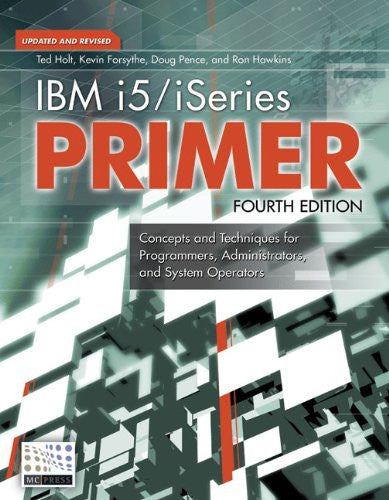A couple of years ago, I switched email clients. I was happy with Eudora but thought it would be prudent to use Lotus Notes instead. I figured any experience at all with Notes would beef up my résumé, and I couldn’t say the same for Eudora.
It was a smooth transition. There was only one distasteful part of the whole process: I had to rebuild my address book. If there is a way to load a Eudora address book into Notes, I couldn’t find it.
I went through the same thing when I switched accounting packages for my consulting practice. I had to rekey my chart of accounts, customers, payroll information, and so on. Such experiences have led me to form what I call Holt’s Law of Interactive Programs: The problem with interactive programs is that you can’t run them in batch. But I’ve digressed.
The problem boils down to this: Different applications store the same kind of data in different formats, and there is no way for one to tell another how the data is organized. This is similar to a problem people face when implementing data warehouses. No one vendor can supply all the parts that users need for data warehousing. Therefore, users must buy data warehousing components from different vendors. However, each component has its own way of describing data. If only data warehousing tools could talk to one another! Two organizations have addressed this problem.
The Meta Data Coalition (MDC) is made up of some 50 players in the software industry. This past July, MDC adopted Microsoft’s metadata interchange proposal, the Open Information Model (OIM). OIM is included in SQLServer 7.0, Visual Studio 6.0, and the products of at least three other software vendors, including CA/Platinum, whose repository architecture is the basis of that of OIM. (If you’re interested in the gory details, visit www.mdcinfo.com/OIM/OIM10.html, where you can download a .pdf file of the OIM standard.)
The Object Management Group (OMG) is a software consortium of more than 700 software developers, vendors, and users. It exists to promote the application of object
OIM
CWMI
technology to real-world problem solving using the Common Object Request Broker Architecture (CORBA) model.
On September 17, 1998, OMG issued a Request for Proposals (RFP) to solve the problem of incompatible metadata formats. OMG proposed that someone somewhere come up with a way for data warehousing software to exchange information about metadata, the data that describes data. Proposals were to be submitted within one year.
This past September, a group of OMG members (including IBM, The Oracle Corporation, Unisys Corporation, NCR Corporation, Hyperion Solutions Corporation, UBS AG, Dimension EDI, and Genesis Development Corporation) submitted a proposal for a Common Warehouse Metadata Interchange (CWMI) standard. More information is available on the Web at www.omg.org.
XML-based
Both standards are based on Extensible Markup Language (XML), a language that is getting a lot of press these days. Like HTML and other markup languages, XML text consists of character data and markup data (tags), which are surrounded by angle brackets. XML’s strength is that the tags are not predefined, as they are in HTML, but are created as necessary to describe the data contained in a document. XML is not implemented as a standalone language; it is designed to be processed by other applications.
CWMI-compliant products will be able to exchange XML documents in various ways. One method is via a batch process, such as an import/export facility. The XML can also be exchanged via programs that use the OMG Interface Definition Language (IDL). Vendors may also choose to provide APIs to handle the exchange of XML.
This doesn’t mean that humans will have to become experts in XML. Computers will write and read XML in order to communicate with each other. People who know XML will be able to read the generated XML if they choose, but they won’t have to.
As usual, it’s too early to tell what the market will decide. While OIM has already been approved and implemented, I believe that CWMI will prevail, mainly because of the large number of members in OMG and CWMI’s adherence to the CORBA standard. It’s likely that we’ll see a merger of both standards; that is, OMG will incorporate desirable features of OIM into CWMI. OMG and MDC are separate organizations, but they do correspond with one another, and the two organizations will investigate the possibility of unifying the two standards.
The CWMI proposal is currently under review and, if adopted, should go into effect during the spring of 2000. We will probably see CWMI-compliant software by the third quarter of 2000. This software would include a host of products that cleanse and load data into the warehouse, as well as products people use to analyze the data in the warehouse. This move toward CWMI compliance will make life tougher for software vendors, but users of data warehousing software will find life much easier.
We Win

















 Business users want new applications now. Market and regulatory pressures require faster application updates and delivery into production. Your IBM i developers may be approaching retirement, and you see no sure way to fill their positions with experienced developers. In addition, you may be caught between maintaining your existing applications and the uncertainty of moving to something new.
Business users want new applications now. Market and regulatory pressures require faster application updates and delivery into production. Your IBM i developers may be approaching retirement, and you see no sure way to fill their positions with experienced developers. In addition, you may be caught between maintaining your existing applications and the uncertainty of moving to something new. IT managers hoping to find new IBM i talent are discovering that the pool of experienced RPG programmers and operators or administrators with intimate knowledge of the operating system and the applications that run on it is small. This begs the question: How will you manage the platform that supports such a big part of your business? This guide offers strategies and software suggestions to help you plan IT staffing and resources and smooth the transition after your AS/400 talent retires. Read on to learn:
IT managers hoping to find new IBM i talent are discovering that the pool of experienced RPG programmers and operators or administrators with intimate knowledge of the operating system and the applications that run on it is small. This begs the question: How will you manage the platform that supports such a big part of your business? This guide offers strategies and software suggestions to help you plan IT staffing and resources and smooth the transition after your AS/400 talent retires. Read on to learn:
LATEST COMMENTS
MC Press Online